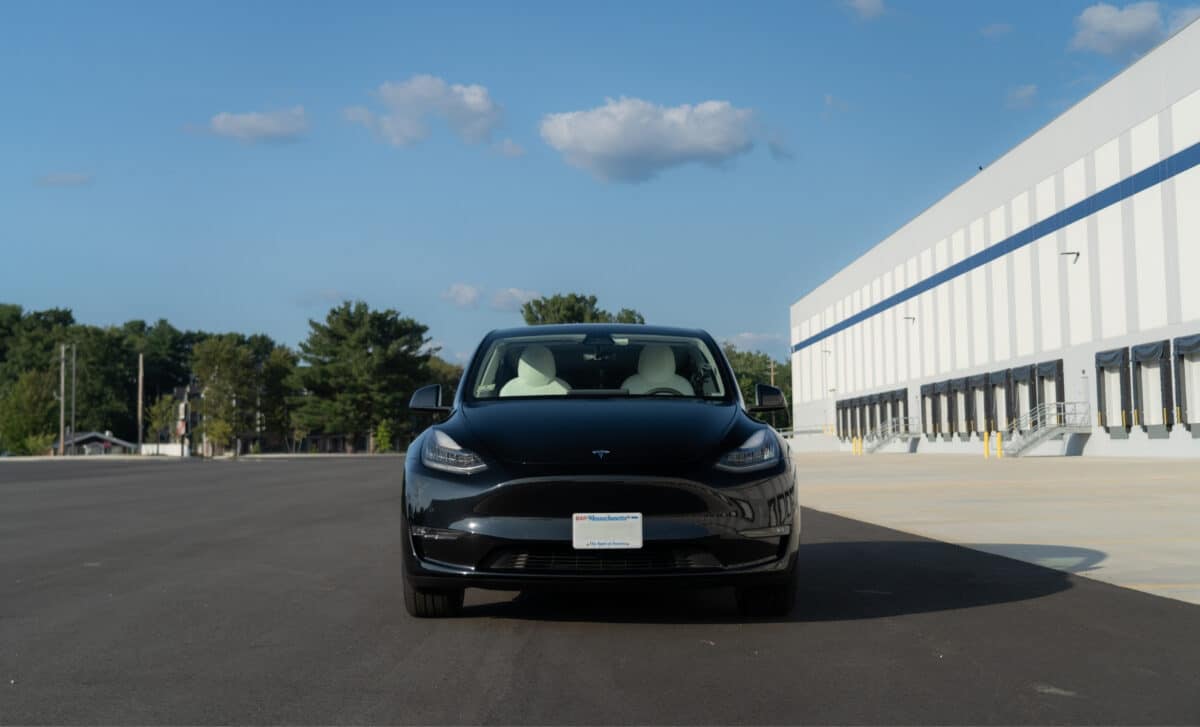According to the latest TÜV reliability report, Tesla’s Model Y led the pack of troublesome cars, surpassing even the Model 3 in defect rates. This marks a troubling milestone for the electric carmaker, which has struggled to meet the durability standards set by many European automakers.
The TÜV report, which analyzes the results of more than 9.5 million vehicles inspected between July 2024 and June 2025, provides a comprehensive overview of car reliability across Germany. The data reveals not only the most defective vehicles but also highlights the overall increase in defect rates, with one in five cars failing their roadworthiness inspection. Tesla’s vehicles, specifically the Model Y, are once again at the bottom of the rankings, reflecting growing concerns over the brand’s build quality.
Tesla’s Struggles: Model Y and Model 3 at the Bottom
According to the TÜV report, the Model 3 once again took the crown for the most defective car for the third consecutive year, with a defect rate of 13.1%. However, the Model Y surpassed it in 2025 with an even worse defect rate of 17.3%, making it the worst-performing vehicle in its age group of 2-3 years.
This result places the Model Y as the most troubled vehicle in over a decade, with the main issues arising in the axle assembly, suspension, brakes, and lighting. These defects have led to Tesla falling to the very bottom of the TÜV’s annual reliability rankings for two years running.
The poor performance of Tesla’s models is a significant blow to the company’s reputation in Europe, where car buyers are increasingly cautious about electric vehicle reliability. While Tesla continues to dominate the EV market in many parts of the world, its performance in Germany reveals a different story, one that could influence future purchasing decisions among European consumers.

Volkswagen and Mercedes Lead the Way
While Tesla flounders, some automakers continue to perform consistently well in reliability rankings. Volkswagen, for instance, dominated the report in various age categories, with models like the Golf, T-Roc, and Touareg all performing admirably. The VW Golf wagon, in particular, stood out in the 4-7 year-old age group, while the Touareg led the rankings for older vehicles, reports Carscoops.
Mercedes also shone in the report, leading the long-term quality category for vehicles aged 10 years or more. According to TÜV, Mercedes vehicles in this category had a defect rate of just 18.5%, making them the most durable vehicles in terms of long-term reliability. Audi and Toyota followed closely behind, reinforcing the trend that established European brands continue to lead the market in terms of vehicle longevity and minimal defects.
Rising Defect Rates: A Growing Concern
The 2026 TÜV report also highlights a worrying trend of rising defect rates across the board. Overall, 21.5% of all cars inspected in Germany failed their roadworthiness checks due to significant defects, marking a 0.9% increase from the previous year.
The report further revealed that minor defects also rose by 0.8%, reaching 12.3%. These figures point to a broader issue with vehicle reliability, affecting not just electric vehicles like Tesla’s, but also combustion engine cars from brands like BMW and Renault.
In particular, the BMW 5-series and 6-series models in the 4-5 and 8-9 year-old categories and the Renault Clio among 12-13 year-old cars all faced higher-than-expected failure rates. These findings suggest that while some brands continue to improve their quality, others are seeing a concerning decline in the reliability of their vehicles as they age.










Stellantis article.
Leaving the EU and UN seems to me the only realistic fight against the globalists.
Rather than begging the EU to change their rules, just leave.
Efforts are to be made to discredit that CO2 is warming the climate to a point that earth will be unliveable, which is the greatest lie ever told, efforts are to be enhanced to teh public as well to leave the EU because of their attempts to ruin economies by depriving industries of the only low cost and effective energy source nature has provided. In addition, CO2 is a life giver, without it, no life could exist on earth.
The exact opposite is true of what the EU, UN and the globalists claim to be correct. The earth is in danger of having too little CO2. Too little CO2 is a danger to the climate.